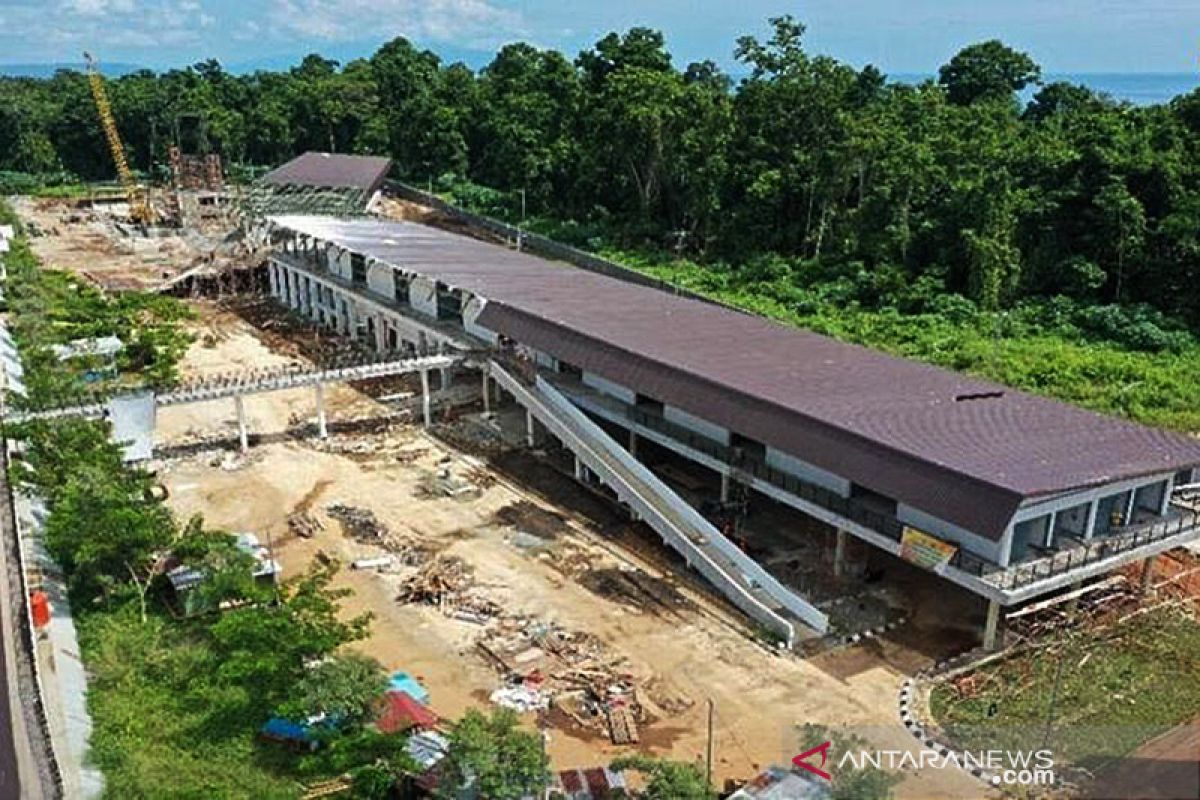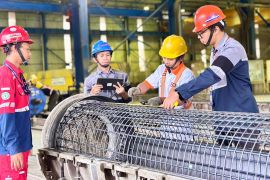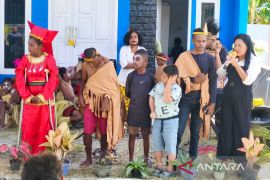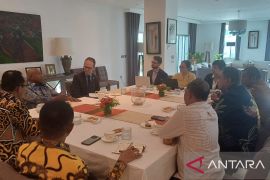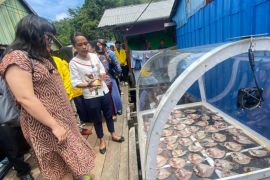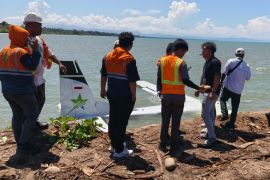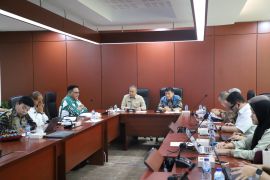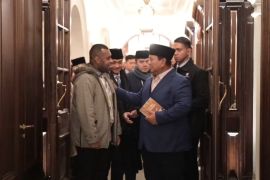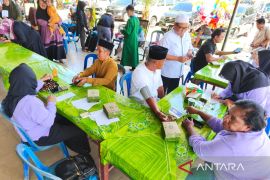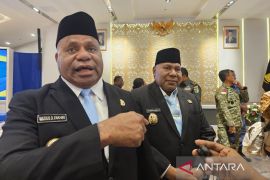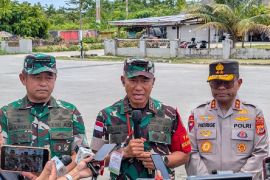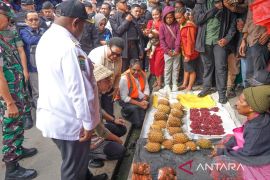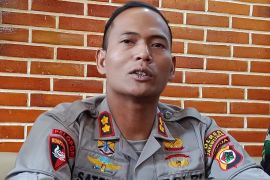Several Papuan community and religious leaders have appealed to the central government to extend the provision of the granted special autonomy funds to maintain sustainable development and improve the people's welfare in these two Indonesian provinces.
One of the influential Papuan figures showing his support for the extension of the granted special autonomy funds is the Yalimo community leader, Soleman Eselo.
Eselo argued that owing to the special autonomy funds, many of the native Papuan people could have been assisted. "Without the funds, our buildings remain ugly and get damaged."
Related news: Papuan community leaders support extension of special autonomy status
The special autonomy funds that the government has granted to Papua and West Papua Provinces for many years are so helpful for Papuans living in remote mountains to achieve their successes in various fields.
"I have been participating in educating Papuans coming from mountainous and hilly regions since 1981. Many of them have been promoted to be bureaucrats owing to availability of the special autonomy funds that has made us get assisted," Eselo said.
Christian priest Merry Lauren Wompere, a member of the Solagratia Indonesian Christian Church (GKI Solagratia) of Arso II in Keerom District, also shared Eselo's views saying that Papua Province's development was much better during the special autonomy era.
"Representing the GKI Solagratia Jaifuri congregation, I appeal (to the government) to continue the special autonomy for the sake of development and progress in Papua," Wompere said.
Those rejecting the special autonomy funds did not represent the voice of Papuan people's conscience. "Instead, they are the enemies of the Papuan people," Wompere said.
Meanwhile, Tiombro Wenda, deputy community leader of the Pegunungan Tengah mountain range in Keerom District, also appealed to the central government to keep granting the special autonomy funds to ensure sustainable development in Papua and West Papua.
"Those who disagree with the extension of the special autonomy do not represent the Papuan people's voice of conscience," Wenda said.
Evaluating the implementation of the special autonomy funds is indispensable but, according to Yanto Eluay, a local community leader in Jayapura, all communities in Papua must see the granting of the funds from the perspective of the people's welfare.
To this end, all traditional communities in Papua are urged to support for what the government will do and decide for the sake of the people's welfare, he said.
Currently, the Tabi and Saireri community members are consolidating to support for evaluating and continuing the provision of these granted special autonomy funds, Eluay said.
Related news: MPR speaker backs extension of autonomy funds for Papua, West Papua
Regarding this special autonomy fund-related issue, People's Consultative Assembly (MPR) Speaker Bambang Soesatyo has called on the government and House of Representatives (DPR) to extend the special autonomy funds for Papua and West Papua.
"With the government and House's political decision, I hope that the provision of the granted special autonomy funds can be extended," he told journalists on the sidelines of his visit to Wamena, the capital of Jayawijaya District, Papua Province, in early March.
However, Soesatyo recalled that the uses of the autonomy funds, which have been granted to Papua Province over for the past 18 years and to West Papua Province for 13 years, should be more effectively directed to improve the welfare of the people.
He highlighted the importance of more effective uses of the funds for improving social prosperity, education, and health of the general public in the two provinces.
The total amount of special autonomy funds that the central government has provided to Papua and West Papua since 2012 has reached Rp126.99 trillion. Therefore, their uses need to be optimized for the sake of the public, he said.
Evaluating the uses of these funds is needed, but it is not for the purpose of looking for mistakes. Instead, the evaluation is aimed at how to make their uses more effective in bringing prosperity to the residents of Papua and West Papua.
More importantly, peace needs to be preserved and prevented from being disrupted by notorious armed Papuan criminals who have frequently threatened the safety and security of the people in the two provinces.
In dealing with these security issues, Bambang Soesatyo suggested that armed Papuan criminals be approached, not only law enforcement, but also through intensive discussions by involving all parties, including local officials and religious figures.
Besides the security issues, human resources development is another important matter that also needs to be evaluated thoroughy because the scores of Papua and West Papua's human development index remains lower than those of other provinces.
Referring to Indonesia's 2019 human development index, the scores of Papua and West Papua were recorded at 64.7 and 60.84 respectively.
Owing to this factual reality, improving the quality of human resources must be prioritized by the Papuan and West Papuan provincial administrations with or without the extended prevision of special autonomy funds amid a fierce competition among Indonesians and among nations in the digital era.
Related news: Jokowi confirms total evaluation of Papua's special autonomy status
Editor: Sri Haryati
Copyright © ANTARA 2020
